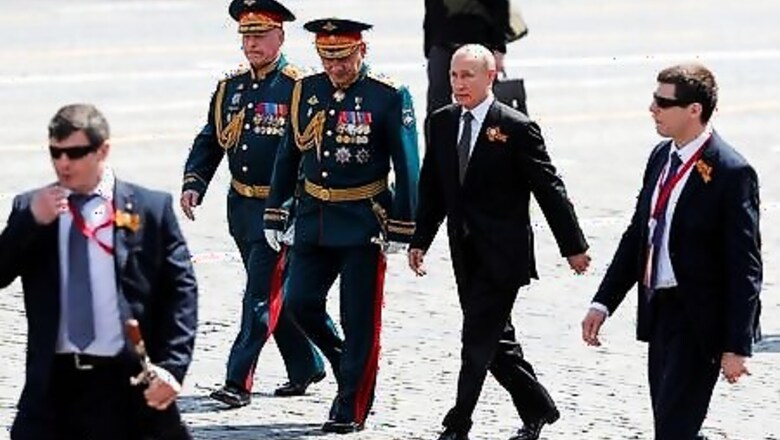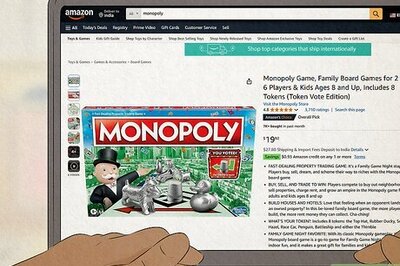
views
MOSCOW/TOMSK: The ruling United Russia party looked set for an array of local election wins on Sunday, but was also on course for some setbacks as stricken Kremlin critic Alexei Navalny’s supporters made rare gains in city politics in Siberia.
The local elections were closely watched for signs of protest voting against the ruling party that backs President Vladimir Putin amid frustrations over years of falling wages and the government’s handling of the pandemic.
The votes also followed the suspected poisoning by a rare nerve agent of opposition politician Navalny who had promoted a tactical voting strategy to hurt United Russia and fielded dozens of candidates for city councils in Siberia.
Official early results showed pro-Kremlin politicians backed by Putin coasting to landslide wins to serve as the governors of the regions of Komi, Tatarstan, Kamchatka and more than a dozen others. Votes were still being counted.
But Navalny’s supporters scored rare victories in city council votes in Novosibirsk, Russia’s third city by population, and the student town of Tomsk where United Russia, which dominates regional power, appeared to have lost its council majority.
“People are sick of the authorities. You can’t sit on the throne for 20 years, grab, steal endlessly, do all of this and go unpunished,” said Ksenia Fadeyeva, who won a council seat in Tomsk.
Navalny supporter Andrei Fateev, 32, also won a seat in Tomsk, while others such as Sergei Boyko, another ally of Navalny, looked set to win council seats in Novosibirk.
“This completely destroys the whole myth about the 2% of liberals and that their ‘support is only among hipsters inside the Garden ring road (in Moscow)’,” said Leonid Volkov, a close ally of Navalny.
With Navalny sidelined by the suspected poisoning, his allies pressed ahead with his “smart voting” strategy, naming more than a thousand politicians they thought were well placed to beat ruling party candidates and urging Russians to vote for them.
In Tomsk, Fateev said United Russia appeared to have won only 12 out of 37 seats on the council after many candidates backed by the smart voting strategy had gone on to win.
Tatiana Doroshenko, a local election official, said she could not remember United Russia ever performing so badly in her 15 years as chairwoman of a district election commission in Tomsk.
“This is an awesome case example … you can actually engage in politics and it’s not futile as it had seemed just so recently,” said Fateev.
Elsewhere it was not immediately clear how Navalny’s strategy had fared with votes still being counted.
Andrey Turchak, United Russia’s general secretary, said the party had scored a “confident victory” in votes seen as a dry run for next year’s parliament elections and weathered the smart voting strategy.
The independent Golos watchdog said ahead of the elections that many opposition candidates had been barred from competing, including several from the Communist party that has seats in parliament and often backs Putin on key policies.
The watchdog also criticised a move to stretch voting out over three days, which it said made potential election fraud harder to catch for monitors.
(Editing by William Maclean and Daniel Wallis)
Disclaimer: This post has been auto-published from an agency feed without any modifications to the text and has not been reviewed by an editor

















Comments
0 comment